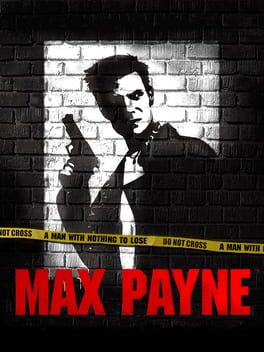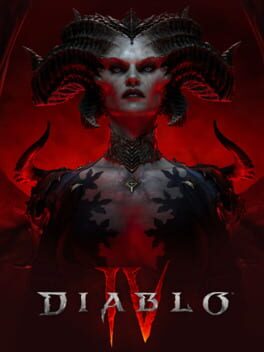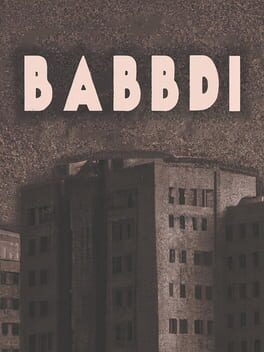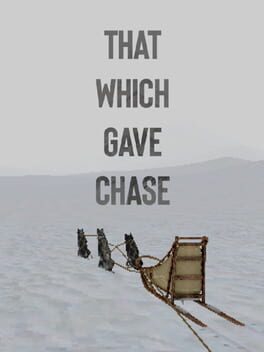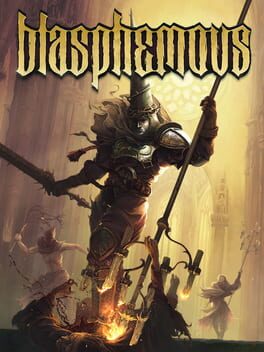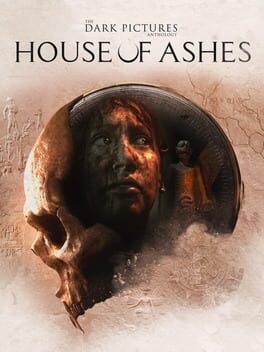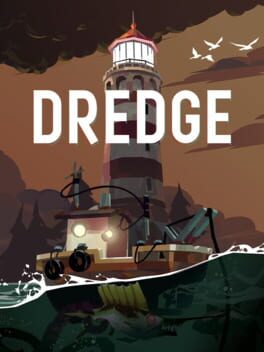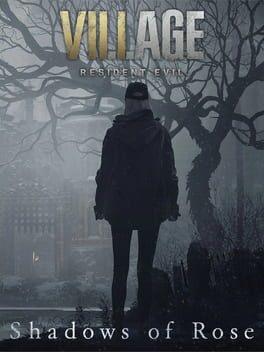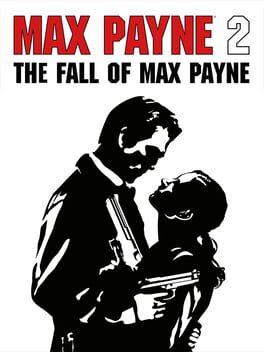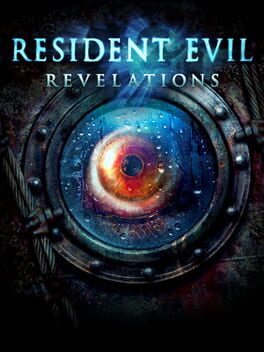kidmillions
BACKER
2001
2023
“Were there souls at all? Was there really a naked, invisible little version of himself hiding under his skin, so valuable to Heaven and Hell that each would send emissaries down to fight for it?” - Between Two Fires
Why preserve Sanctuary? Or care at all about the souls that inhabit it? The question plagues Diablo IV's two demigods/demons, Inarius and Lilith, while your goody two-shoes player-character gets caught up in their bullshit. The place is a dump: goatmen descend on anybody who strays more than 20 feet from a village; everyone has to choose between two or three cults; missing family members abound.
Inarius, in full divorced dad mode, wants to scrap his creation and jet off to Heaven to start over. Lilith has better and more interesting ideas for renovating the place. I found myself wishing for her to succeed (or, just once, to squash me like a little bug? Isn't that what the perverts at Blizzard designed her to do?)
By design, Lilith and my rogue had to be at odds: Diablo never provides much player agency outside of clicking enemies and adding numbers together. At least the clicking and adding is fun and re-playable, and the world design (not to mention cutscenes, voice acting, music) is high-budget maximalism: this is the first Diablo game where I failed to bounce off to more productive pursuits. I kept clicking. Or, eventually, kept enjoying a pretty nifty controller layout that sometimes tricked me into thinking I was playing an action game.
But do you actually have a soul when you play this game? Does Blizzard care what happens to your soul when you spend $100 on horse armor? Of course they don't. Your soul isn't what's valuable; it's your time. The live service stench of it all, like a bloated corpse just off screen, is best ignored...pinch your nose and enjoy and finish the campaign just before it, and you, explode into rotten gas.
Why preserve Sanctuary? Or care at all about the souls that inhabit it? The question plagues Diablo IV's two demigods/demons, Inarius and Lilith, while your goody two-shoes player-character gets caught up in their bullshit. The place is a dump: goatmen descend on anybody who strays more than 20 feet from a village; everyone has to choose between two or three cults; missing family members abound.
Inarius, in full divorced dad mode, wants to scrap his creation and jet off to Heaven to start over. Lilith has better and more interesting ideas for renovating the place. I found myself wishing for her to succeed (or, just once, to squash me like a little bug? Isn't that what the perverts at Blizzard designed her to do?)
By design, Lilith and my rogue had to be at odds: Diablo never provides much player agency outside of clicking enemies and adding numbers together. At least the clicking and adding is fun and re-playable, and the world design (not to mention cutscenes, voice acting, music) is high-budget maximalism: this is the first Diablo game where I failed to bounce off to more productive pursuits. I kept clicking. Or, eventually, kept enjoying a pretty nifty controller layout that sometimes tricked me into thinking I was playing an action game.
But do you actually have a soul when you play this game? Does Blizzard care what happens to your soul when you spend $100 on horse armor? Of course they don't. Your soul isn't what's valuable; it's your time. The live service stench of it all, like a bloated corpse just off screen, is best ignored...pinch your nose and enjoy and finish the campaign just before it, and you, explode into rotten gas.
2022
2021
Imagine a video game with an actual sense of mise en scène, and you get Critters for Sale. I am thankful that it existed for me in this timeline more than I necessarily enjoyed it. Felt a lot like a confident debut album by a band influenced by all of my favorites: cosmic horror, liminal space, warped vaporwave, the occult, casinos, death grips...nailing the exuberant alchemy of it all, even if limited by the production budget of an itch.io solo developer. Color me excited to see what Sonoshee brings to a sophomore effort, which I really really really hope escapes the confines of point-and-click.
It's nice to see a deft application of cinematic language, a barrage of smash cuts, gurgling sound design. To then add the special language of video gaming--"hey, there's the sound of hooves behind you, wanna turn around and look?"; "Don't blocky PSX-era graphics creep you out in some unspecified way?"--and blend it all smoothly is another achievement altogether. But I'm still waiting for something that marries these aesthetics to a gripping story and/or sense of place, and unfortunately this game wasn't the one to do it. Like Paratopic, a similar game in sooooo many ways, this game's obscurity feels more like a distraction than a source of meaning. David Lynch would never.
2019
So the narrative might just be a series of proper nouns. I could not, gun to my head, tell you the plot.
But who cares, Cvstodia is a great place to raise a family.
Would it surprise you to learn that there are no crucifixes in this game? The makers understand that what haunts most Western minds about Catholicism isn't the Jesus part. It's the obsession with the arcane, the centurys-dead history, the bones of saints placed under glass, the body and the blood, eldritch horrors that have been hidden away since Roman times. So we get a Bizzarro Roman Catholicism that remains just at the edge of recognition.
And...thank the High Wills there's a parry system! It's the key to my enjoyment of metroidvania games, and sorely lacking in so many of them.
But who cares, Cvstodia is a great place to raise a family.
Would it surprise you to learn that there are no crucifixes in this game? The makers understand that what haunts most Western minds about Catholicism isn't the Jesus part. It's the obsession with the arcane, the centurys-dead history, the bones of saints placed under glass, the body and the blood, eldritch horrors that have been hidden away since Roman times. So we get a Bizzarro Roman Catholicism that remains just at the edge of recognition.
And...thank the High Wills there's a parry system! It's the key to my enjoyment of metroidvania games, and sorely lacking in so many of them.
This review contains spoilers
This is the first Dark Picture that feels like it works well no matter how the story plays out. It felt unfair to review previous entries after a single play-through. What if you were one mistake away from a tighter plot, more thematic closure, better character arcs?
Surprise surprise, maybe Baldur's Gate 3 has really changed the way I approach gaming: pre-BGS3, when I tried Man of Medan and Little Hope, I thought that "winning" meant keeping everyone alive. A death, even open conflict between characters, meant that I had strayed from the "correct" path. I finished both games stressed and unsatisfied.
Once you realize that these games aren't really about keeping characters alive, or molding them into heroes, you play them completely differently. You see themes laid out in the prologue, and then try to shape the narrative around its premise. You note the archetypes of each character and realize that, actually, yes, some of them SHOULD be ripped apart by bat vampires in order to serve the story. And when things don't go as expected, you see opportunities for delightful chaos.
Does that make these games RPGs? I'm a dipshit and don't know enough about game genres to say one way or another, but I feel like they can be approached as such, to great effect. Give away some control to the designer's intentions and judge the writing and pacing on its own merits.
As far as House of Ashes goes, the setting and themes are so rich, the production values so great, that even if the plotting misses a few QTEs of its own, and the story stacks hats on hats (imagine watching the Descent, Aliens, the Mummy, and Ghosts of Mars at the same time), it all coheres. Top notch voice acting. An action director's sense of camera placement. But, most importantly: one moral character, another who could be redeemed, and three others who really need to die for the sins of American Imperialism. Hilariously, one of them is Ashley Tisdale.
Look, there's no number of ancient alien infestations that can absolve America of the innumerable crimes done to the Iraqi people. The American presence in Iraq in 2003 was the only the most recent extra-terrestrial visit. Like the British before us, we were outsiders trying to re-form the world's oldest civilization in our own image, and left only death in our wake. Maybe Salim should drive a stake through our hearts, too.
Surprise surprise, maybe Baldur's Gate 3 has really changed the way I approach gaming: pre-BGS3, when I tried Man of Medan and Little Hope, I thought that "winning" meant keeping everyone alive. A death, even open conflict between characters, meant that I had strayed from the "correct" path. I finished both games stressed and unsatisfied.
Once you realize that these games aren't really about keeping characters alive, or molding them into heroes, you play them completely differently. You see themes laid out in the prologue, and then try to shape the narrative around its premise. You note the archetypes of each character and realize that, actually, yes, some of them SHOULD be ripped apart by bat vampires in order to serve the story. And when things don't go as expected, you see opportunities for delightful chaos.
Does that make these games RPGs? I'm a dipshit and don't know enough about game genres to say one way or another, but I feel like they can be approached as such, to great effect. Give away some control to the designer's intentions and judge the writing and pacing on its own merits.
As far as House of Ashes goes, the setting and themes are so rich, the production values so great, that even if the plotting misses a few QTEs of its own, and the story stacks hats on hats (imagine watching the Descent, Aliens, the Mummy, and Ghosts of Mars at the same time), it all coheres. Top notch voice acting. An action director's sense of camera placement. But, most importantly: one moral character, another who could be redeemed, and three others who really need to die for the sins of American Imperialism. Hilariously, one of them is Ashley Tisdale.
Look, there's no number of ancient alien infestations that can absolve America of the innumerable crimes done to the Iraqi people. The American presence in Iraq in 2003 was the only the most recent extra-terrestrial visit. Like the British before us, we were outsiders trying to re-form the world's oldest civilization in our own image, and left only death in our wake. Maybe Salim should drive a stake through our hearts, too.
2023
After the first hour, the gameplay loop goes stale. The fish aren't weird enough. By design, every quest is to 'fetch' and to backtrack. An adroit player can completely ignore the ambient threat of 'insanity'. I don't like being prescriptive in my reviews, but just one extra mechanic--an ability to choose and set bait, or build a "home base" dock, or go fishing as different characters with strengths and weaknesses--would've kept things interesting.
Resident Evil has always had this problem where, after a few games with the same protagonists and antagonists, the conspiratorial lore and glut of proper nouns overwhelm any sense of good narrative. This DLC makes a good argument for closing the door on the Winter saga. It all has the feeling of watching deleted scenes on DVD with a new, worse actor spliced into the lead role. This maudlin family drama cannot continue! We need a return to the camp and hard resets of RE:4 and RE:7, stat.
That being said, I've never loved to hate a RE level more than the House Beneviento basement. Smart idea to do an encore setpiece down there.
That being said, I've never loved to hate a RE level more than the House Beneviento basement. Smart idea to do an encore setpiece down there.
2023
The alien characters in this game must've made it too; playing it feels like peering into a spherical artifact from worlds beyond, an impenetrable haze taking familar form if you stare at it enough. I don't think I've ever been more in awe of a game's puzzle design, which, ideally, makes dumb gamers feel smart by elegantly introducing complexity and avoiding blatant hand-holding. How did they make sure idiots like me don't get soft-locked inside one of these orbs?
"In this hall of mirrors/Built by liars, I am a pale reflection of myself"
Sam Lake said in an interview that he took screenwriting classes between Max Payne games, and it shows: the fan-fiction scuzz of the first affair giving way to, well, the kind of stuff you probably learn about in genre screenwriting classes (non-linear plots, unreliable narration, dramatic irony, etc etc).
The weightiness and variety of combat is a huge step up. It's kind of mindblowing how much more 'modern' this game feels than its 2001 predecessor: Max Payne with a bigger budget and more confident and consistent design.
This one also firmly cements what one might call Remedycore. Early on, Max goes to meet a character who lives in an abandoned funhouse based on a TV show called 'Address Unknown', a lurid and fantastical spin on Max's own story. 'Max Payne' literally steps through the tale of 'John Mirra', and we get a preview of what Remedy has tried to recreate in every one of their games since: meta-text that refracts the narrative, a 'linear sequence of scares' (to use Max's term) that reveals not just your lack of free will as a player (Remedy games are anything but 'open'), but the inability of the player-character to overcome a fate laid out for them by some higher force (a best-selling horror writer, or an interdimensional board of directors, perhaps). Every Remedy protoagonist is, in the end, just a trope. Tropes do as tropes are.
Maybe I'm just making an excuse, and in truth the writers are Remedy are making hacky material and disguising it as metatextual innovation. Or maybe simply looking into the funhouse mirror, and not thinking too much, is enough to have a hell of a time.
Or, just maybe, diving and shooting mafia types in slow motion is really fun.
Sam Lake said in an interview that he took screenwriting classes between Max Payne games, and it shows: the fan-fiction scuzz of the first affair giving way to, well, the kind of stuff you probably learn about in genre screenwriting classes (non-linear plots, unreliable narration, dramatic irony, etc etc).
The weightiness and variety of combat is a huge step up. It's kind of mindblowing how much more 'modern' this game feels than its 2001 predecessor: Max Payne with a bigger budget and more confident and consistent design.
This one also firmly cements what one might call Remedycore. Early on, Max goes to meet a character who lives in an abandoned funhouse based on a TV show called 'Address Unknown', a lurid and fantastical spin on Max's own story. 'Max Payne' literally steps through the tale of 'John Mirra', and we get a preview of what Remedy has tried to recreate in every one of their games since: meta-text that refracts the narrative, a 'linear sequence of scares' (to use Max's term) that reveals not just your lack of free will as a player (Remedy games are anything but 'open'), but the inability of the player-character to overcome a fate laid out for them by some higher force (a best-selling horror writer, or an interdimensional board of directors, perhaps). Every Remedy protoagonist is, in the end, just a trope. Tropes do as tropes are.
Maybe I'm just making an excuse, and in truth the writers are Remedy are making hacky material and disguising it as metatextual innovation. Or maybe simply looking into the funhouse mirror, and not thinking too much, is enough to have a hell of a time.
Or, just maybe, diving and shooting mafia types in slow motion is really fun.
"Revelations" is such a apt title for this one. It betrays what the devs at Capcom thought was cool and fun about Resident Evil at the time: watching the stinky onion of a conspiracy peel off layer by layer. No puzzles, no camp, no fun. Whoever told me this was an actual throwback lied. Scooby-Doo ass game.
